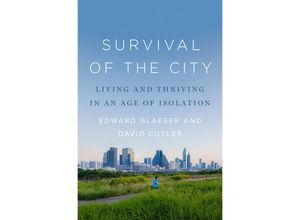One of our great urbanists and one of our great public health experts join forces to reckon
with how cities are changing in the face of existential threats the pandemic has only
accelerated Cities can make us sick. They always have diseases spread more easily when more
people are close to one another. And disease is hardly the only ill that accompanies urban
density. Cities have been demonized as breeding grounds for vice and crime from Sodom and
Gomorrah on. But cities have flourished nonetheless because they are humanity s greatest
invention indispensable engines for creativity innovation wealth and connection the loom
on which the fabric of civilization is woven. But cities now stand at a crossroads. During the
global COVID crisis cities grew silent as people worked from home if they could work at all.
The normal forms of socializing ground to a halt. How permanent are these changes? Advances in
digital technology mean that many people can opt out of city life as never before. Will they?
Are we on the brink of a post-urban world? City life will survive but individual cities face
terrible risks argue Edward Glaeser and David Cutler and a wave of urban failure would be
absolutely disastrous. In terms of intimacy and inspiration nothing can replace what cities
offer. Great cities have always demanded great management and our current crisis has exposed
fearful gaps in our capacity for good governance. It is possible to drive a city into the
ground pandemic or not. Glaeser and Cutler examine the evolution that is already happening
and describe the possible futures that lie before us: What will distinguish the cities that
will flourish from the ones that won t? In America they argue deep inequities in health care
and education are a particular blight on the future of our cities solving them will be the
difference between our collective good health and a downward spiral to a much darker place.

